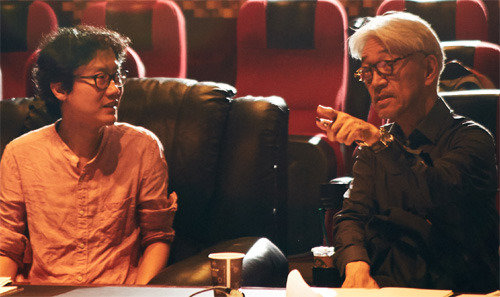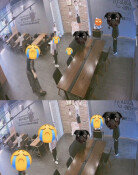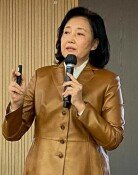Composer Ryuichi Sakamoto to receive a music award in Korea
Composer Ryuichi Sakamoto to receive a music award in Korea
Posted November. 02, 2017 07:32,
Updated November. 02, 2017 09:15

Japanese composer Ryuichi Sakamoto (aged 65), who wrote music for the movie “The Fortress” will receive a music award from the Korean Association of Film Critics Awards next Tuesday.
Sakamoto became the first Asian to receive the Academy Music Award for his work in the “Last Emperor” (1987). The Fortress, which also opened in North America and slated for premiere in Taiwan this month and Japan next year, became the first Korean movie for him to work on. Sakamoto, who lives in New York, was interviewed by The Dong-A Ilbo via e-mail.
After the release of his regular album titled “Async” in June this year, he expressed his interest in “participating in Korean movie with a modern and contemporary background.” He said his involvement in the “The Fortress” was a good opportunity to express his friendship and respect for Korean culture and the Korean people.
The Second Manchu Invasion and the Disgraceful Defeat on Samjeon Island (1637) was history that was initially unfamiliar to him. He read through the scenario, talked with director Hwang Dong-hyeok and eventually found himself deeply immersed in the history. He eventually shed tears on two scenes. “I found myself crying when Choi Myeong-gil (played by Lee Byung-hun) implored to the Qing Emperor to spare the lives of his innocent people. It was also heartbreaking to watch Kim Sang-heon (played by Kim Yoon-seok) take his life,” the composer said. “I was impressed by the noble expression on King Injo (Park Hae-il)’s face.”
The snowy ice fields and the tight tension against the silence depicted in the film are reminiscent of one of his previous works: “The Revenant,” starring Leonard DiCaprio.
“The real main character of ‘The Revenant’ is nature,” said Sakamoto. “On the other hand, ‘The Fortress’ is a movie about the complex psychology of humans, which is why I approached the work more emotionally and dramatically.”
Sakamoto, who is close to Kim Duk-soo, a "samulnori" master, also said that it was a huge challenge to combine elements of Korean traditional music with Western and electronic music. “I was already familiar with gayageum, pansori and traditional percussions, and I am happy to have learned about Ajaeng, Daegeum, Piri and especially Jeong-ga,” he said. “The strings were recorded in Seattle, and Western percussion music in Hamburg, Germany. A lot of work was done in New York, too.”
The calm and emotional sounds that have been arranged against the battle scenes are impressive. “When the images are violent and tense, there is no need for further emphasis,” he said. The music grows most sorrowful in the scene where King Injo opts to surrender and leaves the fortress. “I wanted to express the scene in a way that was tragic, yet determined, individual yet historic,” he explained.
“Movies are like travelling. They take me to a specific age and location and introduce me to a new culture and history,” the composer added. “The Fortress is reflective of Korea’s reality wedged among China, the United States, North Korea and Japan. I think the movie also tells us that people never change.”
Fighting cancer since 2014, Sakamoto works out every day by stretching and yoga. He hinted that he is planning to work on an animation film jointly made by Korea and Japan. “I started working on the new music last month. I would love to go to Korea if there is a chance,” he said.
imi@donga.com







